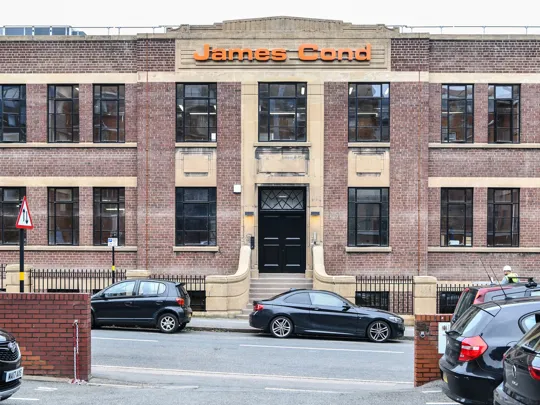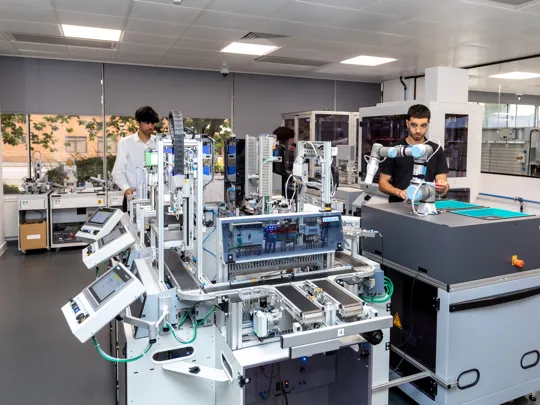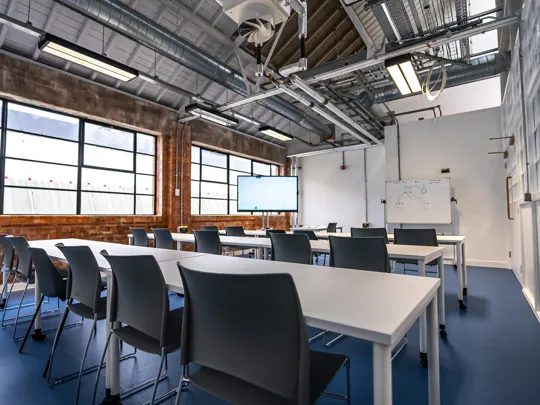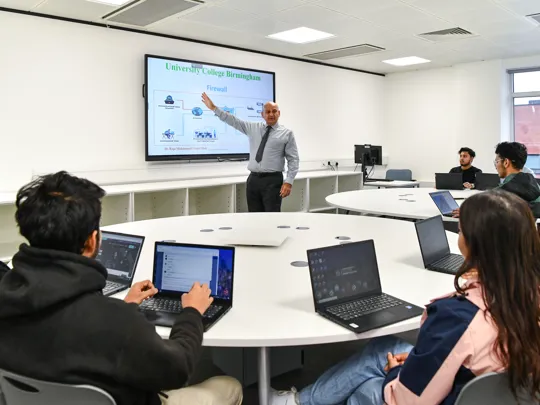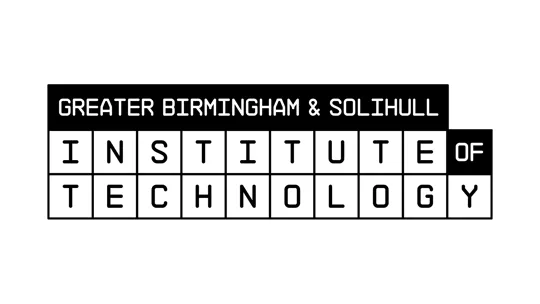of graduate employers say relevant experience is essential to getting a job with them
Why should I choose this Adult Level 3 Engineering course?
- BOOST YOUR SKILLS – Gain hands-on experience with cutting-edge technologies including computer-aided manufacturing, robotics, microcontrollers, and even elements of AI. This course is designed to reflect the latest developments in modern engineering.
- RECOGNISED QUALIFICATION – Achieve a nationally respected BTEC Level 3 in Engineering, tailored to give you real-world, work-related knowledge. Whether you're aiming for higher education or stepping into a technical career, this qualification opens doors.
- GET CAREER-READY – Prepare for a wide range of in-demand roles in engineering and manufacturing – from maintenance and repair to installation and quality control. You’ll also benefit from expert tutors and dedicated support, especially designed for adults re-entering education.
- BUILD A STRONG FOUNDATION - This one-year qualification is ideal for adults looking to gain essential engineering knowledge and practical skills without the pressure of formal exams. With all coursework-based assessment and a variety of engineering subjects covered, it’s the perfect launchpad for progressing into higher-level study at university or exploring specialist areas within the field.
Our facilities
Students on our construction and engineering courses will learn in brand new real-world training environments under development at University College Birmingham. Our Centre for Sustainable Construction at the iconic James Cond building will offer state-of-the-art facilities specifically designed to develop skills that support employers and their supply chains, along with further new facilities at Camden House. These will include:
- Training rigs
- Production line technology
- Industry 4.0 rigs
- Process manufacturing training equipment
- Hydraulics
- Pneumatics
- Renewable energy simulators
- Control engineering rigs
- Cyber physical system
- Mechatronics automation
- PLCs
- Fluid dynamics software
- MATLAB design software
- Enhanced IT facilities
Course breakdown
Topics you will study:
- Mathematics for Engineering Technicians
- Mechanical Principles of Engineering Systems
- Health and Safety in the Engineering Workplace
- Electro, Pneumatic and Hydraulic Systems and Devices
- Principles and Applications of Electronic Devices and Circuits
- Communications for Engineering Technicians
Please note: Units/topics of study are subject to change
You will also have an individual study programme to help you build the skills and experience you need to progress onto higher education or gain employment.
Entry requirements
Our engineering lecturers are looking for students who are enthusiastic and passionate about a career in manufacturing and engineering or are already working within the sector, together with a keen determination to succeed in the industry, so please contact Admissions if you do not have the specific requirements outlined below.
If you are unsure if your qualification is equivalent or if you wish to check if you meet the entry requirements for this course, please call 0121 214 2919, email feadmissions@ucb.ac.uk or use our live chat.
Academic requirements
- 4 GCSEs at grade 4 (grade C) including English (Language or Literature), or equivalent.
- GCSE Maths at grade 5.
- Alternatively, we will accept individuals with relevant industry experience.
English and maths
As applicants are required to achieve English and Maths at grade 5 or above prior to entering this course, University College Birmingham will not offer English or maths alongside this course.
Supporting documents required
- You may be required to provide a reference from a previous education provider or employer in support of your application.
Guaranteed progression
Students who successfully complete a Level 3 qualification in this subject can progress here at University College Birmingham. Students will be guaranteed progression to one of our relevant degree-level courses.
Key information
Teaching and assessment
All subjects are assessed through a combination of coursework, practical activities, and in-class tests, with no formal exams.
Our teaching and assessment is underpinned by our Learning and Teaching Strategy 2025-2030.
Accreditations, endorsements and partnerships
University College Birmingham works with a wide range of organisations to ensure you receive the best possible training and qualifications recognised by industry.
Work placements
Work placements offer valuable benefits alongside your studies – helping you apply your learning in real-world settings, deepen your understanding of the engineering workplace, and develop practical skills that enhance your CV or UCAS application for higher education. Our dedicated HIRED team is on hand to help match you with the ideal placement opportunity.
For those already working in the sector, your current role may count toward your placement hours, allowing you to build on existing experience while meeting course requirements.
Attending a work or industry placement is a key part of our Level 3 Engineering course. This typically involves one day per week over several weeks, totalling around 60 hours, and is designed to support both career changers and those already in the field.
Career opportunities
The roles and salaries below are intended as a guide only.
Manufacturing engineer
Average salary: £30,000 - £35,000
Production engineer
Average salary: £28,000 - £36,000
Process engineer
Average salary: £33,000 - £42,000
Maintenance engineer
Average salary: £30,000 - £40,000
Design engineer
Average salary: £32,000 - £37,000
Automation engineer
Average salary: £35,000 - £45,000
Aspiring to a higher level career? Complete this course and you could progress onto our Electromechanical Engineering BEng, Automated Manufacturing Engineering BEng (Hons) or Mechanical Engineering BEng (Hons) course.

Rachael's story
From repairing and re-purposing machinery on her family farm to leading innovations in advanced manufacturing, Senior Lecturer Rachael brings decades of real-world engineering expertise and passion to inspire the next generation of problem-solvers.



